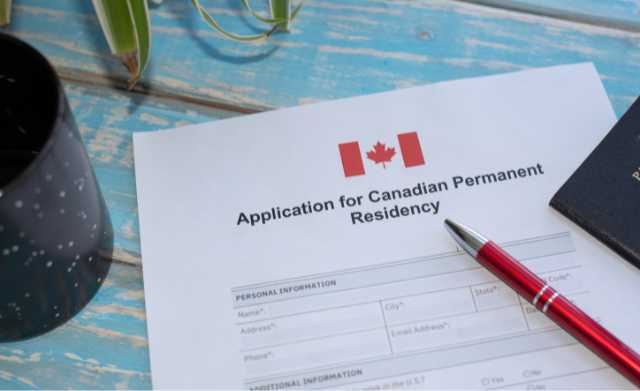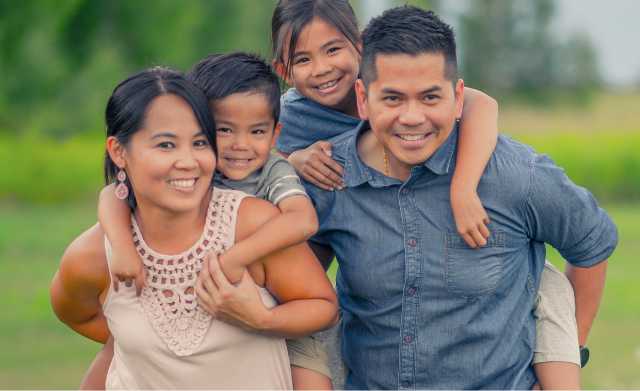Study Permit
The study permit is a document we issue that allows foreign nationals to study at designated learning institutions (DLIs) in Canada. . Most foreign nationals need a study permit to study in Canada. Make sure you have all the documents you need before you apply. You should apply before you travel to Canada.
If you’re a legal resident in certain countries, you may be able to get your study permit faster by applying online through the Student Direct Stream.
You may need to give biometrics with your application. This processing time doesn’t include the time you need to give biometrics.
Eligibility requirements
- are enrolled at a DLI
- prove you have enough money to pay for
- your tuition fees
- living expenses for yourself and any family members who come with you to Canada and
- return transportation for yourself and any family members who come with you to Canada
- obey the law, have no criminal record and get a police certificate (if required)
- are in good health and get a medical exam (if required) and
- prove to an officer that you will leave Canada when your study permit expires
Get your study permit faster through the Student Direct Stream

Most foreign nationals need a study permit to study in Canada. The cases below are exceptions.
You don’t need a study permit if you’re coming to Canada for a program that lasts 6 months or less.
You may not need a study permit if you’re a family or staff member of a foreign representative to Canada that has been accredited by Global Affairs Canada (GAC). Your embassy can contact GAC to find out if you need one.
If you’re a member of a foreign armed force on official duties in Canada, you don’t need a study permit. If your family members, including minor children, want to study in Canada, they may need one.
You don’t need a study permit if you have Registered Indian status in Canada, even if you’re a citizen of another country.
- Minor children don’t need a study permit if:
they’re refugees or refugee claimants - their parents are refugees or refugee claimants, or
- they’re in pre-school, primary or secondary school, and they’re already in Canada with a parent who has a work or study permit
Note: When minor children reach the age of majority (18 or 19 years old, depending on the province or territory), they must apply for a study permit if they want to keep studying. Learn more about minors studying in Canada.
You don’t need a study permit to take French language and cultural integration courses in Quebec (linked page is available in French only). To be eligible for the courses, you need to be a temporary resident or asylum seeker in Canada.
If you’re taking settlement and integration courses offered by a provincial or territorial government to help you settle into Canada, you don’t need a study permit.
- proof of acceptance
- proof of identity
- proof of financial support
- a letter of explanation
- an attestation of issuance of your Quebec Acceptance Certificate (CAQ)
- a medical exam
- a custodian declaration (minors only), or
Other Documents - if we request documents from you for an application in progress
Your school must send you a letter of acceptance. Include the original or electronic copy of your letter with your study permit application.
If you’re the family member of someone who has a study permit or work permit application that’s been approved in writing before you come to Canada, you don’t need a letter of acceptance.
When applying for your study permit, you and each family member who comes with you to Canada must have
- Online applicants:
Upload a copy of the information page of your passport when you apply online.
- Citizens of the United States have some options on the identification documents they can carry.
- Lawful permanent residents of the United States must travel with a valid green card (or equivalent official proof of status in the U.S.) and a valid passport from their country of nationality (or an equivalent document)
- two recent passport-size photos
The name and date of birth of the person should be written on the back of each photo.
You must prove that you can support yourself and the family members who come with you while you are in Canada.
You can prove your funds with
- proof of a Canadian bank account in your name, if you’ve transferred money to Canada
- a Guaranteed Investment Certificate (GIC) from a participating Canadian financial institution
- proof of a student or education loan from a bank
- your bank statements for the past 4 months
- a bank draft that can be converted to Canadian dollars
- proof you paid tuition and housing fees
- a letter from the person or school giving you money, or
- proof of funding paid from within Canada, if you have a scholarship or are in a Canadian-funded educational program
Persons coming to Canada | Amount of funds required per year (not including tuition) | Amount of funds required per month (not including tuition) |
|---|---|---|
You (the student) | CAN $10,000 | CAN $833 |
First family member | CAN $4,000 | CAN $333 |
Every additional accompanying family member | CAN $3,000 | CAN $255 |
If you and 2 family members want to come to a province (other than Quebec) for a year, you will need
- living expenses: $ 10,000 (for the student)
- living expenses: $ 4,000 (for the first family member)
- living expenses: $ 3,000 (for the second family member)
- Total: $ 17,000
Persons coming to Canada | Amount of funds required per year (not including tuition) | Amount of funds required per month (not including tuition) |
|---|---|---|
1 person under the age of 18 | CAN $6,569 | CAN $547 |
1 person aged 18 or over | CAN $13,134 | CAN $1,095 |
2 people aged 18 or over | CAN $19,264 | CAN $1,605 |
2 people aged 18 or over and 1 person under the age of 18 | CAN $21,579 | CAN $1,798 |
2 people aged 18 or over and 2 people under the age of 18 | CAN $23,290 | CAN $1,941 |
If your country uses foreign-exchange controls, you must prove that you’ll be allowed to export funds for all of your expenses.
- why you want to study in Canada
- that you understand your responsibilities as a student
You should include this letter if you decide to apply for a study permit, even if you don’t have to get a study permit for your program.
If you want to study in Quebec for longer than 6 months, you need an attestation of issuance of your Quebec Acceptance Certificate (CAQ) issued by the Government of Quebec. Your school can tell you how to apply for the CAQ.
Find out about the process and the documents you need for studying in Quebec.
If you plan to study in Quebec for less than 6 months, you can apply for a study permit without a CAQ.
You may need a medical exam if any of these situations apply to you:
- You plan to stay in Canada for more than 6 months.
- You recently spent time in certain countries.
- You plan to work in certain jobs where public health must be protected.
If the minor requires a custodian, you must include the Custodianship Declaration form (PDF, 1.02 MB) with your application. It has 2 pages that must be notarized (certified by a notary) and then included with your study permit application.
The custodian in Canada must sign the first page, and the parents or legal guardians of the minor child in the child’s home country must sign the second page.
Check the visa office instructions for your country or region for local requirements.
If you aren’t currently in your home country, you may have to prove your immigration status in the country you apply from.
If the government that issued your passport or travel document needs you to have a re-entry permit, you must get one before you apply for a Canadian visa. You may also need other documents.
If we request documents from you for an application in progress
- We’ll contact you to request the supporting documents.
- This will happen in the next few months.
- You’ll have 30 days from the date we contact you to submit the information.
- Start collecting your documents.
- Do this before we contact you. It can take time to get certain documents.
- Check the last email we sent you to confirm what you need to submit.



